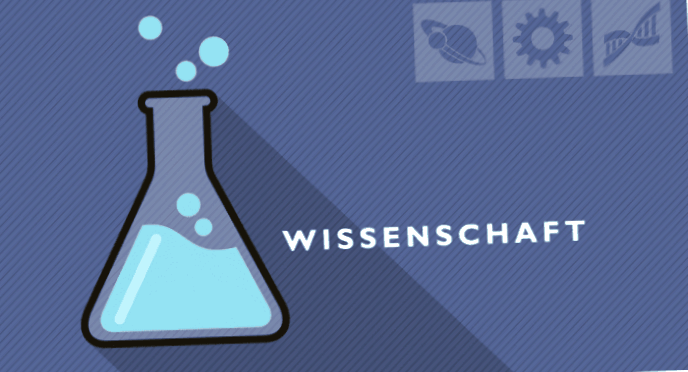
Scientists want to have found that the important ranking after citation and the journal Impact Factor is faulty
You should think that programs, be kept Ki-confessed or not to create a ranking ranking for some criteria. But there are always uncaughted influence in the game, which can remain unnoticed for a long time. With KI programs has recently been clear that the data selection can play a distorting role that leads to strange results.
But this can also happen elsewhere with computer programs, as Unlangst Zhi Quan Zhou, T.H. TSE and Matt Witheridge for the ranking important in science have found out. The citation of articles and the Journal Impact Factor (JIF) is recognized here, which is to measure how influential or important is a scientific journal. How often articles are quoted in science journals, is considered to be the importance of authors, the article, the Universities and the Journals.
The scientists from Hong Kong Universitat and the Australian University of Wollongong examined how they write in their study, the two main citation databases Scopus and Web of Science. Scopus is used for citation statistics on the ranking of universities, web of science for the creation of the JIF. The rankings are controversial anyway, but if they also contain mistakes, it becomes problematic in view of the importance of rankings for the scientific operation and scientists. In 2015, it has already been found in a study that apparently articles are quoted with a long-way title less frequently.
And the scientists have found a strange but fatal mistake, which asks the ranking overall. If an article in his title has a hyphen, which, of course, has no influence on its scientific quality, it is automatically considered less important because that lowers the quotation in the databases. For safety’s sake, the authors therefore not used a hyphen in the title of their publication, but a colon: "Metamorphic Robustness Testing: EXPOSING HIDDEN DEFECTS IN CITATION STATISTICS AND JOURNAL IMPACT FACTORS".
The results of their investigation should apply to all science literature and for all areas such as physics or chemistry. The scientists had tested the reliability of the software of the databases, whether they can handle incorrect entries or unexpected situations. In order to capture the method of metamorphic testing, to check whether the expected results were made with the factual votes, for example, by making typing mistakes when entering the name of an author or a hyphen from a title in a Fubnote became. "Robust" Are Scopus and Web Of Science by no means, which are unable to link the references for such small mistakes.
But why are titles with dashes less frequently cited? The scientists suspect that authors, if they quote an article, may overlook the hyphens. Then no link can be made in the databases with the article with dashes in the title, which is why the quotation index will be wrong. The problem seems to be overturned by several dashes that increase the error of errors of the people. That the long the title has something to do with the creation of citation, the scientists deny. Langere titles were simply contained more likely to contain more hyphens – and therefore less frequently cited because of the hypothesis. And article with dashes should also reduce the JIF of Science Journal.
The more hyphens, the lower the citation frequency. Image: University of Hong Kong
How to play more sources of error in the quantitative evaluation of scientific work and journals. But the scientists already see the reliability of citation statistics and the JIF by their investigation, because the number of hyphens should, of course, no influence on the suspected quality by quantitate. "These surprising results are not for professors of interest that want to look for or doctorate after a job, but also for the university manager such as preasidents, decans or ladder. They meet for all faculties of the university", writes T.H. TSE.
The assessment will be difficult because the company Clarivate, the Web of Science looks after, has responded to the study and claimed that hyphens can not have any influence because they use linked and non-linked citation for the JIF. You do not rely on the article title alone, which can be mistaken, which is why hyphens no influence on citation.
T.H. TSE denies the objection. The empirical results were shown that hyphens in titles have a negative impact on citation and JIF. You also demonstrated this with screenshots. You can only use black box tests because the source code of the proprietary software is unknown. For black box testing, the internal data structures such as linked and non-linked quotes are not important. But you can already uncover mistakes.